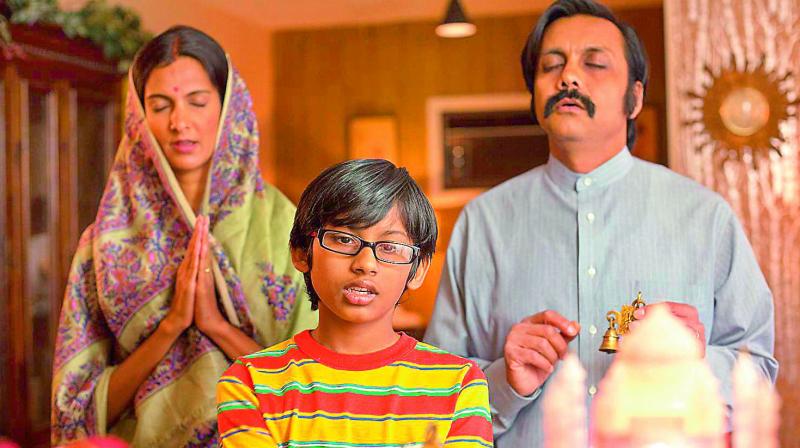The plight of Telangana's child artistes
In a state where entertainment is of paramount importance, child artistes are working very hard to achieve fame and money.

Only last month the Ministry of Labour & Employment passed an amendment to the Child Labour Act, 1986, pertaining to kids working in the entertainment industry. As per the new amendment, children below the age of 14 can only do a fixed five-hour shift every day and cannot work for more than three hours without rest.
However, the amendment did not succeed in making much noise in Telangana. The utter lack of understanding about kids’ rights as well as the absence of monitoring systems that ensure implementation are both meting out a great deal of injustice for child artistes.
After speaking to many people from the entertainment industry, it is apparent that many children end up spending several hours on sets, sometimes shooting even at the wee hours. Another form of exploitation is seen in the kids’ remuneration.
According to the amendment that was implemented in 2016, 20 per cent of the children’s earnings have to be saved as fixed deposits, but most employers and parents are not even aware of the norms.
State of affairs!
Why is the situation so bleak in the first place? “The problem is that most of these amendments are made centrally. For each Act, the rules have to be made in the state, which doesn’t happen often. Also, the ministry in the state lacks the infrastructure to monitor its implementation,” reveals Mamatha Raghuveer Achanta, woman and child rights activist.
Concurring with Mamatha’s thought, Achyuta Rao of Balala Hakkula Sangam, an NGO in Hyderabad that works for child rights, says, “The kids might love acting, but no one talks about the psychological and physiological impact the characters they play can have on them.”
Where are the support systems?
And to top it all, it’s disappointing that in an industry full of multiple kinds of organisations and unions, there is no particular body dedicated to child artistes. In fact, upon asking Nikhil if he was a part of any group for child artistes, he looked very confused, before saying that there were no such groups as far as he knew. “That’s the thing. There are no separate registration bodies for kids like other artistes have. Along with losing their childhood and sometimes money too, they do not even have a support system,” concludes Mamatha.
Comparing norms globally
Sharat Chertluru, father of eight-year-old Zbigsnew Chertlur, who was seen in Varun Tej’s Mister, reveals, “In the UK, children cannot work for more than 20 minutes at a stretch. Also, 30 per cent of their earnings have to mandatorily be put into fixed deposits.”
The rules in the US, too, are quite stringent. Rajani, mother of Roni Akurati, who starred in Growing Up Smith, says, “Kids can’t act if they don’t do school on the sets. The filmmaker has to arrange for a teacher.” But the situation back home is an extreme contrast. Out here, many children are unable to study amidst their busy shoot schedules.
Film vs Television
It looks like parents of a few child artistes have a fancier life when compared to kids on TV. D. Suri Babu, father of Nikhil (16), who was seen as the young Baahubali and is working for a long time, tells us, “In films, we have the advantage of time. So we shoot a scene and wait for a while before he is called on set again. And even if it is a film where the kids have major roles, they probably have to go on for an hour at a stretch.”
Talking about reality shows, Suri Babu recalls how life wasn’t easy for the kids who were part of reality shows earlier. “Nikhil was in Aata and Challenge back then. Those shows left the kids exhausted because they practiced into the wee hours of the night. However, some activists came to know this and things got better,” he says.
Zooming into the legalities
Activist Mamatha points out that the contracts signed by these kids don’t exactly mention their work timings. “There are multiple laws and regulations formed within the film industry for animals too! But sadly kids don't have that luxury. The contracts they sign usually cover details only about the remuneration and dates of working. There’s no talk of the work timings,” she says.
Talking about the remuneration she adds, “Also, not a single rupee goes to the kids at times. The remuneration is used for domestic purposes. These kids might spend all their energy working. But in the end, there are times when nothing is left for them.”

